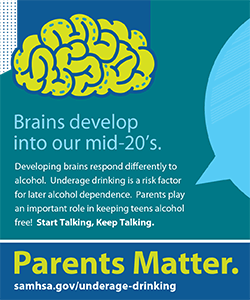|
 Being overweight is known to be a factor in early periods and also
in what’s known as gestational diabetes, but it did not fully
explain the link between the two conditions, the researchers write
in the American Journal of Epidemiology. Being overweight is known to be a factor in early periods and also
in what’s known as gestational diabetes, but it did not fully
explain the link between the two conditions, the researchers write
in the American Journal of Epidemiology.
Diabetes develops in as many as 9 percent of pregnant women in the
United States and can carry serious health risks, according to the
Centers for Disease Control and Prevention.
Mothers with gestational diabetes are more likely to have high blood
pressure and go into premature labor, said lead study author
Danielle Schoenaker, a research officer at The University of
Queensland.
“There are also consequences for the baby, which is more likely to
grow faster and be larger at birth,” Schoenaker told Reuters Health
by email. “In the longer term, both mothers and their children are
at higher risk of developing type 2 diabetes later in life.”
To explore the link between women’s age at first menstruation, known
as menarche, and their risk of developing gestational diabetes, the
study team analyzed data on nearly 5,000 women participating in the
larger Australian Longitudinal Study on Women’s Health between 2000
and 2012.

The women included in the analysis all reported a live birth during
the study and had completed a questionnaire every three to four
years, answering questions about when they had their first period
and whether they were diagnosed or treated for diabetes during
pregnancy. None had type 2 diabetes or a previous history of
gestational diabetes at the start of the study.
The average age at which women got their first period was just under
13 years, researchers found.
Women who had their first period at or before age 11 were more
likely to have been overweight in childhood, to engage in little
physical activity as adults and to currently be overweight or obese.
Overall, 357 women, or about 7.5 percent of the participants,
reported being diagnosed with gestational diabetes. These women were
also more likely to be overweight or obese and to have a sedentary
lifestyle at the beginning of the study.
Women who got their first period before age 11 were 51 percent more
likely to develop gestational diabetes, compared with those who
started menstruating at age 13.
[to top of second column] |

This was true even after the researchers took into account things
that might influence age at menarche or risk for gestational
diabetes, including mothers’ education level, physical activity,
previous children, a hormonal condition known as polycystic ovary
syndrome and body mass index (BMI), a measure of body fat based on
height and weight.
“Chronic disease risk, such as risk of type 2 or gestational
diabetes may be ‘programmed’ much earlier in life by exposures
occurring during developmentally sensitive periods such as puberty,
infancy or even intrauterine life,” said Dr. Dana Dabelea, a
professor at the University of Colorado Denver who studies
gestational diabetes but was not involved in this research.
Interventions to address these health issues may need to start
earlier to address the risk of diseases like diabetes, Dabelea said
by email.
“Women with early menarche are at increased risk of diabetes later
in life so they should take additional precautions, especially
active lifestyles and maintaining a healthy body weight, to mitigate
this increased risk,” Dabelea said.
“Supporting healthy environments and behaviors from early in life
are important strategies, and promoting healthy eating and physical
activity should be a priority for young mothers and schools, and for
all women throughout their lives,” Schoenaker said.
SOURCE: bit.ly/2n66XQ5 American Journal of Epidemiology, online
March 5, 2017.
[© 2017 Thomson Reuters. All rights
reserved.] Copyright 2017 Reuters. All rights reserved. This material may not be published,
broadcast, rewritten or redistributed.
 |